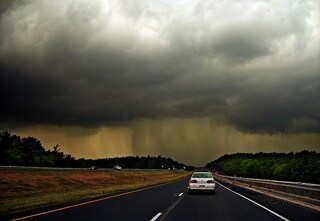

If you haven't yet changed your winter tires over to summer tires, now is the time. As temperatures start to increase, winter tires can lose traction on hot roads and affect your stopping distance and control.
It's obvious that you don't want to use summer tires in winter but a lot of
people think it's fine to use winter tires in summer. However, the results of
one study of stopping and control during both wet and dry summer conditions
show that winter tires just aren't good for warm weather driving.
Winter tires are made specifically for wintery
conditions -- colder temperatures, ice and snow. The tread is designed
specifically to grip on slick ice and prevent loss of control and produce
shorter stopping distances. If you take a good look at the tread, you can see that it's made to
compress snow between the grooves to give your car footing and prevent sliding.
Winter tires are also firmer and sturdier to stand up to ice and snow. But that
same tread doesn't do well in warm temperatures.
Because summer tread is soft and pliable, when temperatures
are warmer they are sticker and cling to dry and wet roads better than firm
winter tires. Winter tires get their traction from adhering to snow, whereas
summer tires adhere to the road surface itself. While asphalt might heat up in
summer and become slightly softer, it's nothing like snow and can't be compressed into
a winter tire's tread to help your car grip the road.
As a result, in warm temperatures when the roadway isn't
cool or snow covered, winter tires take longer to stop -- you might even lose control of your
car. In the rain, your winter tires won't push rain out of the way to grab to
the road the way summer tires do, making you even more vulnerable during summer
showers.
Not sure whether you have winter or summer tires? Come in to the Adventure Subaru Service Center and let us help you decide what you need.





